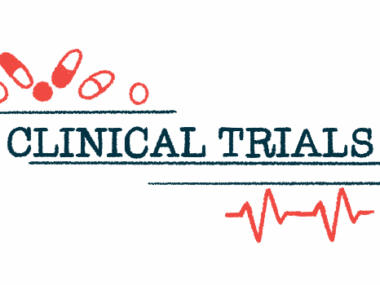Intellia launches Phase 3 trial of gene-editing therapy NTLA-2002
HAELO now recruiting HAE patients to test treatment's safety, efficacy
Written by |

Intellia Therapeutics has launched a Phase 3 clinical trial to evaluate the efficacy and safety of NTLA-2002, a single-dose gene-editing therapy for people with hereditary angioedema (HAE).
The new trial, dubbed HAELO (NCT06634420), was given the green light by the U.S. Food and Drug Administration (FDA) based on data from an ongoing Phase 1/2 study, which demonstrated that a single dose of the gene-editing therapy markedly reduced the number of swelling attacks in HAE patients.
The global study is now recruiting up to 60 adults with HAE at Allergy & Asthma Clinical Research in Walnut Creek, California, with more sites expected to open soon.
“Initiation of the HAELO Phase 3 trial is a significant milestone for Intellia as we enter the final stage of clinical development for NTLA-2002 for people living with hereditary angioedema,” John Leonard, MD, president and CEO of Intellia, said in a company press release. “Data from the ongoing Phase 1/2 study showed great promise that a single-dose treatment can lead to a complete response — no more attacks and no further treatment required.”
Phase 3 trial marks ‘final stage of clinical development’ for NTLA-2002
In HAE, abnormally high levels of the signaling molecule bradykinin drive the swelling attacks that characterize the disease. Bradykinin’s production is controlled by an enzyme called kallikrein.
NTLA-2002 is a one-time therapy that uses the CRISPR/Cas9 gene-editing technology to inactivate a gene that provides instructions for making prekallikrein, a kallikrein precursor. By doing so, the experimental therapy is expected to lower kallikrein levels, thus reducing bradykinin production and helping to prevent swelling attacks.
An ongoing Phase 1/2 clinical trial (NCT05120830) is testing NTLA-2002 in 37 adults with HAE. In the study’s Phase 1 portion, 10 patients received a single infusion of NTLA-2002 at one of three doses. After nearly two years of follow-up, the treatment was shown to reduce monthly swelling by a mean of 98%, leaving most patients free from swelling attacks.
In its Phase 2 part, which started dosing last year, participants were given a one-time infusion of NTLA-2002 at one of two doses (25 or 50 mg) or a placebo. Over a 16-week, or nearly four-month, primary observation period, both doses of NTLA-2002 markedly reduced the number of attacks, with no new safety problems noted.
Intellia has announced plans to present detailed data from the Phase 1/2 trial at the 2024 American College of Allergy, Asthma & Immunology (ACAAI) Annual Scientific Meeting, which will be held later this month in Boston.
We are working urgently to bring forward NTLA-2002 to address the real-world needs of people suffering from this disease and, ultimately, believe it will bring significant value to patients, physicians and payors.
For its part, HAELO will evaluate NTLA-2002 in approximately 60 adults with HAE type 1 or 2. Participants will be randomly assigned to receive a single 50 mg infusion of NTLA-2002 or a placebo. The trial’s primary goal is to assess the therapy’s ability to reduce the number of HAE attacks from weeks 5-28, or over the course of approximately six months.
Secondary measures include assessing the proportion of participants who are free of attacks, and changes in the total score of the Angioedema Quality of Life (AE-QoL) questionnaire by week 28. The researchers also will determine the percentage of patients who are attack-free and no longer need on-demand or preventive (prophylaxis) treatment for up to two years.
Those individuals initially given the placebo will have the option to receive NTLA-2002 at week 28 and be assessed for the number of swelling attacks occurring from week 33 for up to two years.
“We are working urgently to bring forward NTLA-2002 to address the real-world needs of people suffering from this disease and, ultimately, believe it will bring significant value to patients, physicians and payors,” Leonard said.






